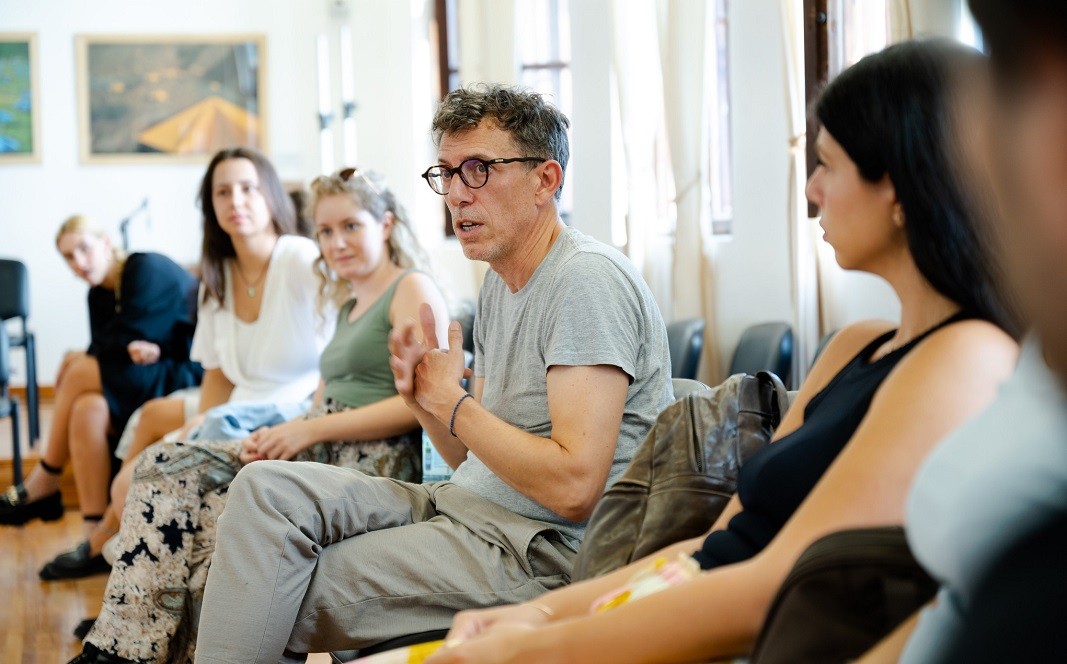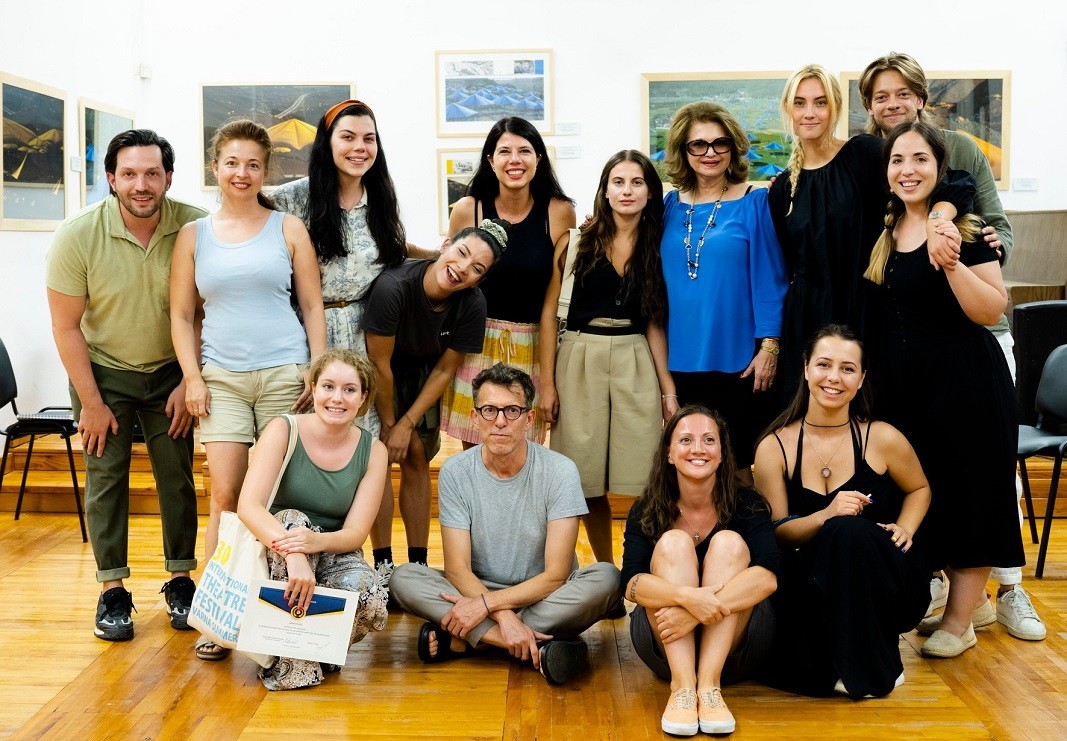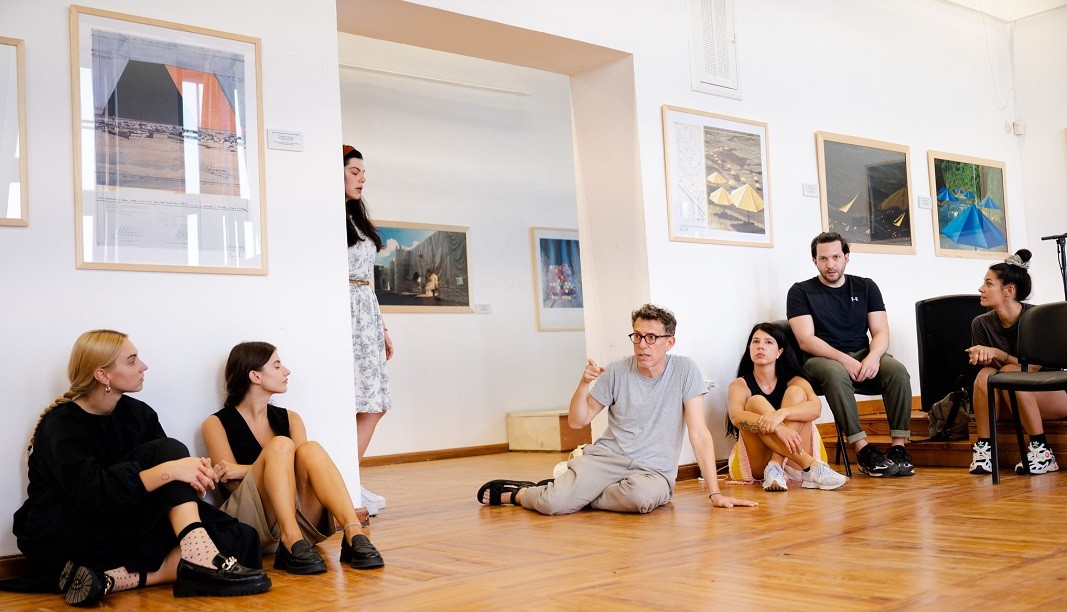Bulgarian theatre director Galin Stoev is perhaps the most recognizable figure in the worldwide theatre scene associated with Bulgaria. As manager and director of the National Theatre of the French city of Toulouse, he knows that establishing yourself as an artist in France is no easy task. He recognizes that he is accepted in the community, without striving for it at any cost, he meets actors and stage workers who understand and share his view of the productions.
However, Stoev's voice is strong enough to be heard outside the magical space of the theatre hall. For years, he has been monitoring and reacting to every significant event or change that has occurred in the Bulgarian socio-political space.

This year, he was among the special guests at the 38th edition of the Apollonia festival in Sozopol, where he held his master class and revealed his point of view on what the price of success is:
"When you're on stage, you get power, which, however, is connected with responsibility”, the director explains in an interview for the Hristo Botev channel of the BNR. "Politicians think that they have to turn a blind eye, while are in power, and with that their entire horizon ends, which I consider deeply tragic”.

Although it is a mission and a constant process for every artist - to create in times like the present is a special challenge.
“War is the ultimate form of dehumanization, and when it exists, it is tantamount to killing the ability to be creative. Of course, creators maybe we are privileged to a certain extent, because we can talk and interpret what is happening in different ways”.
In this sense, theatre turns at the same time into an escape from the problems of the world outside, but also into an attempt to overcome those that ``gnaw'' at us from the inside.
"Theatre turns anger and powerlessness into something constructive," Galin Stoev believes. "It achieves this by confronting the person with his own fears and shortcomings , and running away is no longer a solution for a long time. The world has shrunk, and information now reaches us much faster. Even if we wave our hands at problems, which we still do sometimes, it will not make them go away, nor will it lead to anything constructive."

Within the framework of his master class, it was important for Galin Stoev to show his students their hidden creative potential, as well as what it feels like to be able to freely express themselves.
"I try to encourage and provoke them, because in both things there are moments that destabilize them - whether as something good or bad. In these moments, you have to find the courage to let go and trust your inner feeling that you are on the right path”, Galin Stoev says.

Compiled by Joan Kolev
English version Rositsa Petkova
Photos: Facebook / ApolloniaFestival
On the occasion of the upcoming National Holiday - March 3 and 147 years since the Liberation of Bulgaria from Ottoman rule, the Regional Library in the city of Yambol is conducting the campaign "Let's Read for Bulgaria". The goal is..
The Aviation Training Center at Sofia Airport has received accreditation from the Airports Council International (ACI) and joins the elite group of 21 training hubs, including those at leading European airports such as Munich,..
The Museum of the Bulgarian National Revival in Varna presents a collection of 15 authentic folk costumes from the collection of the Historical Museum in the town of Popovo. The valuable costumes are from the regions of Elhovo,..
On February 16, Radio Bulgaria celebrates its 89th anniversary . Throughout these years, our multilingual media has been not only a channel of information,..
At various times in its existence, the BNR's Directorate of Foreign Language Broadcasts, now known as Radio Bulgaria, the multimedia multilingual platform..
February 16, 2025 marks the 127th anniversary of the first bulletin of the Bulgarian Telegraph Agency, signed by its first director Oscar Iskander. The..

+359 2 9336 661
